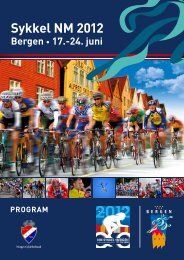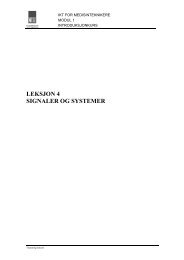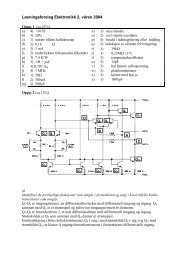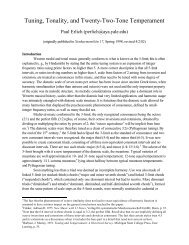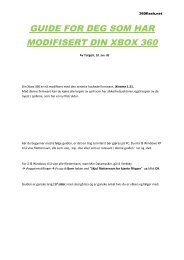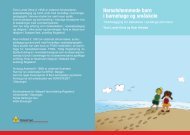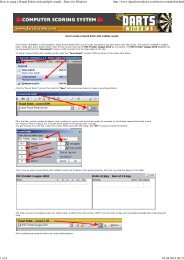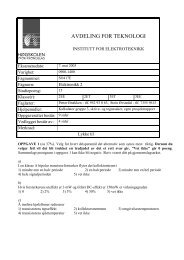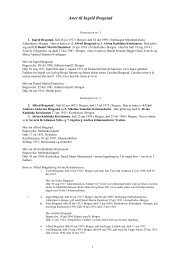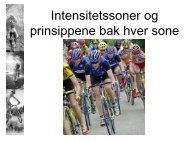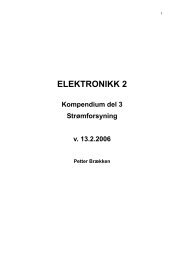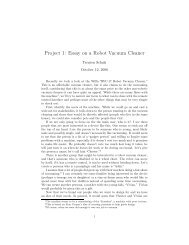The Online World resources handbook
The Online World resources handbook
The Online World resources handbook
Create successful ePaper yourself
Turn your PDF publications into a flip-book with our unique Google optimized e-Paper software.
Practical tips http://home.eunet.no/~presno/bok/12.html<br />
some other protocol.<br />
Read about 'offline readers' in chapter 16 for more about this.<br />
Recommended.<br />
Surfing strategies.<br />
Frank Burns of the American online service MetaNet is spokesperson for the strategy Scan Focus<br />
Act.<br />
On your first visits to a new online service, you SCAN to get an overview of what is being offered<br />
and find out how to use it most efficiently. Notes are made of interesting bulletins, databases,<br />
conferences, messages, news services, public domain and shareware programs, games, and more.<br />
Capture everything to disk. Don't study it until disconnected from the service. Rate the material to<br />
prepare for your next moves: FOCUS and ACT.<br />
New Netscape users may have problems doing this. However, it is not as complex as it<br />
sounds, and in particular if you take the trouble to retrieve shareware utilities like<br />
Cache Master or Web Saver from the net. <strong>The</strong>y let you read and search the Web texts<br />
saved in Netscape's cache on your hard disk. Use http://www.shareware.com to locate<br />
them.<br />
Another option is to have Netscape mail you the pages.<br />
As you learn about offerings, users and applications, your use of the services changes. Things that<br />
caught your attention on your first visits, lose to discoveries. Some applications may be promoted to<br />
"something I want to do again," like when you decide to read a given news report on Monday<br />
mornings.<br />
Here are some other hints:<br />
Find out what you do NOT need to know and have enough self confidence immediately to<br />
discard irrelevant material. Walk quickly through the information. Select what you need now,<br />
store other interesting items on your hard disk, clip references, and drop the remainder of your<br />
capture file.<br />
Learn when and how to use people, computers, libraries and other <strong>resources</strong>. Prepare well<br />
before going online. Note that the online resource may not necessarily be the quickest way to<br />
the goal. If you want the name of Michael Jackson's latest album, you may get a faster answer<br />
by calling a local music shop. . . .<br />
Make an outline of how to search the service before going online. If required, start by going<br />
online to collect help menus and lists of search commands (unless you already have the printed<br />
user information manual). Study the instructions carefully, plan your visit, and then call back.<br />
Often, it may be useful to do trial searches in online data captured to hard disk during previous trips.<br />
Do this to check if your use of search words is sensible.<br />
Who knows, you may even find what you are searching for right there. Besides, you must use the<br />
correct search terms to find what you are looking for.<br />
Write your search strategy on a piece of paper. If you know how to write macros for your<br />
communications program, consider writing some for your planned search commands. Few people<br />
can type 240 characters or more per second. Using macros may save you time, frustration and<br />
money.<br />
It may be wise to do your search in two steps. On your first visit: Get a LIST of selected<br />
headlines or references, and then log off the service.<br />
Study your finds, and plan the next step. <strong>The</strong>n call back to get full text of the most promising<br />
stories.<br />
This strategy is often better than just 'hanging online' while thinking. When you feel the pressure of<br />
the taximeter, it is easy to make costly mistakes.<br />
Novices should always go the easiest way. Don't be shy. Ask SOS Assistance services for help,<br />
if available. When using commercial services, invest in special communication programs with built in<br />
automatic online searching features. <strong>The</strong>y are designed to make your work easier.<br />
Limit your search and avoid general and broad search terms. It is often wise to start with a<br />
search word that is so 'narrow' that it is unlikely to find articles outside your area of interest. Your goal<br />
is not to find many stories. You want the right ones.<br />
You should periodically go back to the SCAN phase, and not concentrate on FOCUS<br />
and ACT alone.<br />
Using email gateways to Internet <strong>resources</strong><br />
Things are so simple with Netscape. If you want a file, just click on the link, and it gets transferred to<br />
3 of 13 23.11.2009 15:48




